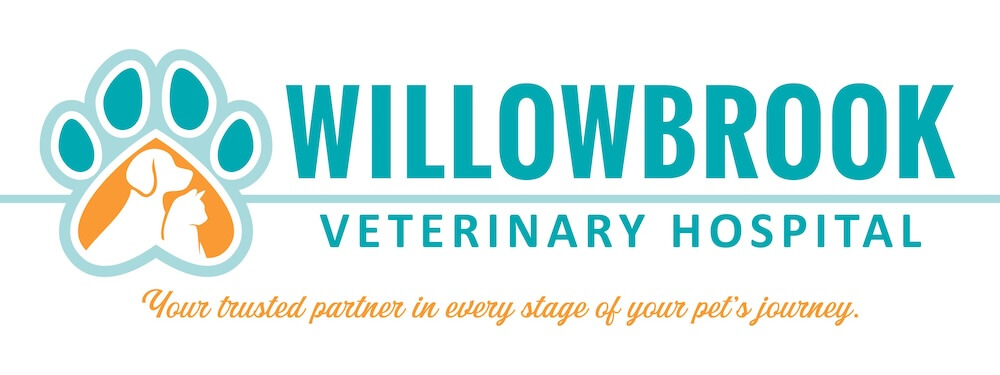Dog Orthopedics & Mobility Care
Advanced Orthopedic Diagnostics and Surgery—Right Here at Willowbrook
Mobility is essential to your dog’s quality of life. Whether they’re a playful puppy or a senior slowing down, orthopedic health plays a huge role in how comfortably they move. At Willowbrook Veterinary Hospital, we diagnose and treat a wide range of orthopedic issues—from minor injuries to advanced degenerative conditions.
For dogs that require specialty surgery, we partner with MOVES Mobile Veterinary Specialists, bringing board-certified surgeons directly into our hospital to perform advanced orthopedic procedures in the comfort of a familiar environment.
What Are the Most Common Orthopedic Problems for Dogs?
We regularly diagnose and treat conditions like:
- Hip Dysplasia – A genetic condition causing poor joint fit and arthritis
- Torn Cruciate Ligament (CCL) – A common knee injury, similar to an ACL tear in humans
- Luxating Patella – A kneecap that slips out of place
- Intervertebral Disc Disease (IVDD) – Spinal disc degeneration or herniation, often painful
- Arthritis (Osteoarthritis) – Chronic joint inflammation and stiffness
Are Some Dogs More Prone to Orthopedic Issues?
Yes. Larger breeds (like Labs, German Shepherds, and Golden Retrievers) are more likely to develop hip dysplasia or CCL tears. Small breeds often experience luxating patella. Overweight dogs are at higher risk of joint stress/injury and arthritis, and certain genetic lines may have inherited orthopedic predispositions.
What Can These Problems Lead To?
If left untreated, orthopedic conditions can cause:
- Chronic pain
- Reduced mobility
- Muscle atrophy
- Behavioral changes (aggression, depression)
- Long-term joint damage
Early detection and treatment can make a big difference in outcomes.
Can Orthopedic Problems Be Prevented?
Some orthopedic conditions are genetic, but you can help reduce risk by:
- Keeping your dog at a healthy weight
- Avoiding overexertion in young puppies
- Providing appropriate consistent exercise
- Using ramps for senior dogs
- Scheduling regular wellness exams for early detection
How Are Orthopedic Issues Typically Treated?
Treatment plans are tailored to each dog and may include:
- Anti-inflammatory or pain medications
- Laser therapy
- Physical therapy and rehabilitation
- Controlled activity or crate rest
- Joint supplements
- Surgical intervention in more advanced or unresponsive cases
What Is Orthopedic Surgery for Dogs?
Orthopedic surgery addresses structural problems in bones, joints, ligaments, or the spine. Surgeries may involve:
- Joint repair or replacement
- Cruciate ligament stabilization (TPLO, extracapsular repair, etc.)
- Luxating patella correction
- Hip or elbow dysplasia surgeries
- Fracture repair
Which Problems Can Orthopedic Surgery Address?
Surgery may be recommended for:
- Severe ligament tears
- Recurrent or painful luxating patella
- Non-responsive arthritis
- Bone fractures
- Herniated spinal discs (IVDD)
- Joint deformities causing lameness or pain
How Will My Veterinarian Know if Surgery Is Needed?
We start with a full orthopedic exam, digital X-rays, and may refer to advanced imaging when needed. If surgery is indicated, our team will walk you through your options—including what procedures MOVES can perform right here at Willowbrook, avoiding the need for referral to an outside facility.
How Is My Dog Monitored During Surgery?
During orthopedic procedures, your dog is closely monitored by our trained surgical support team. We track:
- Heart rate and rhythm
- Oxygen and carbon dioxide levels
- Blood pressure
- Temperature
- Anesthetic depth
This ensures the highest level of safety throughout the procedure.
Do Dogs Recover Well from Orthopedic Surgery?
Yes—with the right care, most dogs experience significant improvement in comfort and mobility. Many return to normal or near-normal activity levels. Specific recovery plans are tailored to your dog’s specific condition. Our partnership with MOVES allows for board-certified surgical expertise and excellent outcomes without needing to leave our hospital.
What Kind of Post-Op Care Will My Dog Need?
We’ll provide a detailed recovery plan, which may include:
- Medications for pain and inflammation
- Activity restriction and crate rest
- Follow-up exams and imaging
- Physical therapy or rehabilitation
- Support with weight management or nutrition
We’re with you every step of the way—from surgery to full recovery.
Is your dog limping, slowing down, or showing signs of pain? Don’t wait—orthopedic care can restore comfort and mobility.
If you have questions, we would love to answer them for you. Please give us a call at the office at (503) 968-2911, or you can email us at [email protected]. Our staff would love to talk with you!
